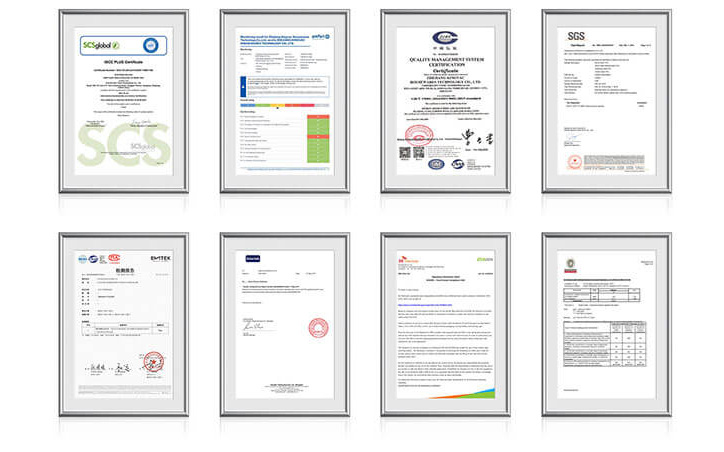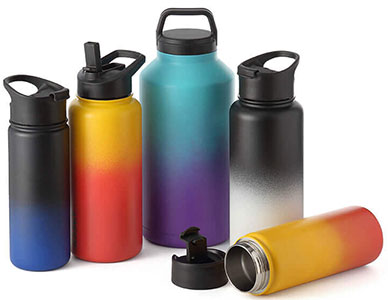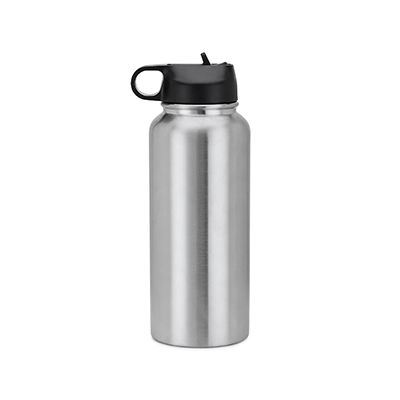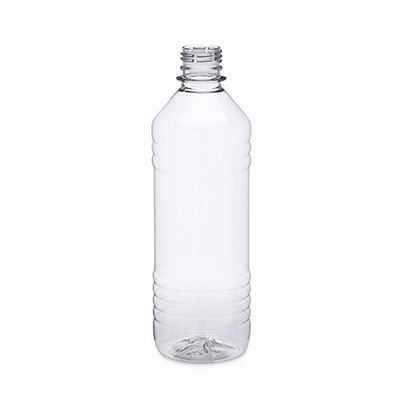1. Introduction
Amid the growing concerns about plastic waste and its environmental impact, the stainless steel water bottle has experienced a significant surge in popularity. But in recent years, the safety of stainless steel water bottles has become a subject of growing concern among health-conscious individuals. With the increasing awareness of potential health risks related to something used in food and beverage containers, many people are now questioning the safety of their trusted hydration companion. stainless steel water bottles, once hailed as a safe and eco-friendly alternative to plastic bottles, are now facing people’s concerns due to their fears of leaching chemicals or metals into the contents they hold. This concern stems from the belief that if harmful substances were to enter the water or beverage, they could pose a risk to human health over time. As a result, we write this article, taking you to explore whether stainless steel water bottle is safe to use.
2. Is stainless steel a safe material for water bottles?
Of course, stainless steel is a safe material for water bottles.
Stainless steel alloys like 304 or 304L are commonly used in various water treatment and processing applications, including municipal water systems. This is because stainless steel offers several advantages for storing and containing water. Water can be slightly corrosive, which can cause issues when using materials like steel pipes. However, stainless steel has excellent corrosion resistance properties, reducing the risk of corrosion-related contamination. In culinary water systems, where water is meant for consumption, steel or iron pipes are typically coated inside to protect themselves from contamination and corrosion. They also have inherent resistance to algae, bacteria, and other biological agents adhering to their surfaces. This characteristic makes stainless steel a suitable choice for water bottles as it helps minimize the growth of contaminants.
3. How does stainless steel compare to plastic in terms of chemical leaching?
Unlike plastic bottles, stainless steel bottles do not retain odors or flavors, ensuring a clean drinking experience. stainless steel water bottle offer numerous advantages over plastic counterparts. They are highly durable, corrosion-resistant, and do not leach chemicals such as BPA or phthalates into the water. Additionally, stainless steel bottles are environmentally friendly as they are recyclable and can be reused for an extended period, reducing reliance on single-use plastic bottles and minimizing waste. For your better understanding, we’d like to show you in the form of a table:
| Factors | stainless steel water bottle | Plastic Water Bottles |
| Corrosion Resistance | Yes | No |
| Chemical Leaching | No | Leach over time |
| BPA and Phthalates | No | Yes |
| Durability | Highly durable | Can degrade over time |
| Odour and Flavor Retention | No | Yes |
| Environmental Impact | Recyclable | Contribute to waste |
4. Are there any risks of heavy metal exposure from stainless steel bottles?
High-quality 18/8 stainless steel of 304 and 316 grade are very safe. They are composed of iron, chromium, and nickel, with 18/8 stainless steel containing 18% chromium and 8% nickel. These metals are generally stable and not quickly released from the stainless steel. As a result, the risk of heavy metal exposure from stainless steel bottles is typically minimal. And 18/8 stainless steel is commonly used in the manufacturing of stainless steel bottles. But here are several factors we need to pay attention to:
- Quality and composition: High-quality stainless steel bottles made by reputable manufacturers will adhere to safety standards and have lower levels of potential contaminants. Cheaper or poorly manufactured bottles may have higher levels of impurities.
- Acidic or salty liquids: Stainless steel is generally resistant to corrosion, but prolonged exposure to highly acidic or salty liquids may cause the leaching of small amounts of metals. To minimize any potential risk, it is recommended to avoid storing acidic or salty beverages for a long time in stainless steel bottles.
- Damage and wear: Scratches, dents, or other physical damage to the stainless steel surface may bring the risk of metal leaching. It’s a good practice to inspect your stainless steel bottle regularly for any signs of damage and replace it if necessary.
The risks associated with heavy metal exposure from high-quality 18/8 stainless steel bottles are generally negligible. However, it’s always a good idea to purchase bottles from reputable manufacturers, follow care instructions, and be mindful of the liquids you store in them to minimize any potential risks.
5. What certifications and standards should readers look for in stainless steel water bottle?

We have mentioned that the safety of poor stainless steel water bottle cannot get ensured. So the choice of high-quality stainless steel water bottle is very important. One way to guarantee the quality of stainless steel water bottle is to check their certifications as well as standards. When selecting stainless steel water bottle, there are several certifications and standards you can look for to ensure their quality and safety.
- Food-grade Stainless Steel: Ensure that the water bottle is made from food-grade stainless steel, typically labelled as 316 or 304 stainless steel. This indicates that the material is safe for storing food and beverages.
- BPA-Free: Bisphenol A (BPA) is a chemical often found in plastics that can leach into liquids and pose health risks. Look for bulk blank drink bottles labelled as BPA-free to avoid this chemical.
- FDA Approval: The U.S. Food and Drug Administration (FDA) sets regulations for food contact materials. While they don’t specifically approve wholesale blank vacuum flasks, many reputable brands comply with FDA guidelines. Check if the water bottle is FDA-approved or meets FDA standards.
- ISO 9001: The International Organization for Standardization (ISO) sets standards for quality management systems. A water bottle manufacturer with ISO 9001 certification is committed to quality control and consistency in their production processes.
- ISO 14001: This certification indicates that the manufacturer follows environmental management standards. It ensures that the production process minimizes environmental impact and encourages sustainability.
- Leak-Proof and Safety Testing: Some manufacturers conduct additional testing, such as leak-proof and safety tests, to ensure the water bottle meets quality and safety standards. Look for brands that mention conducting such tests.
6. How to safely use and maintain stainless steel water bottle?
Successfully sourcing reliable and high-quality stainless steel water bottle doesn’t represent the end, subsequent maintenance is equally important.
6.1 What are the proper cleaning guidelines for stainless steel water bottle?
Here are several brief suggestions for you:
- Handwashing is generally recommended for stainless steel water bottles. Use warm water and mild dish soap.
- Use a bottle brush or a non-abrasive sponge to clean the interior and the opening of the bottle thoroughly.
- Pay extra attention to cleaning the cap and any crevices where bacteria can accumulate.
- Rinse the bottle thoroughly with clean water to remove any soap residue.
- Allow the bottle to air dry completely before storing or using it again.
6.2 Which materials and cleaners should be avoided when cleaning stainless steel bottles?
- Avoid using harsh or abrasive cleaners, such as bleach, ammonia, or chlorine, as they can damage the stainless steel finish.
- Acidic substances like vinegar or lemon juice should also be avoided, as they can cause discolouration or affect the taste of the water.
- Avoid using scrub brushes or pads with hard bristles, as they can scratch the surface of the bottle.
6.3 How frequently should stainless steel bottles be cleaned and maintained?
It is recommended to clean stainless steel water bottles / insulated tumblers / blank metal thermos coffee cups after each use to prevent the growth of bacteria and maintain hygiene. If the bottle has been used for storing beverages other than water, such as juices or smoothies, it should be cleaned immediately to prevent odours and stains.
7. Conclusion
In conclusion, the quality of our water bottles plays a crucial role in our overall health and well-being as we rely on them daily for hydration. Choosing a suitable water bottle is of paramount importance.
BulkFlask, a reputable wholesale water bottle manufacturer, prioritize high-quality stainless steel water jug that adheres to safety standards. Our bottles are made from food-grade stainless steel, ensuring the absence of harmful substances like BPA and phthalates. By selecting drink bottles from reputable manufacturers like BulkFlask, individuals can ensure they are making a safe and sustainable choice for their hydration needs. Remember to follow proper cleaning and maintenance guidelines to prolong the lifespan and maintain the safety of your stainless steel water bottle. Stay hydrated, and stay healthy! If you want more information, please contact us!
Click and read more: Custom Promotional Tumblers Can Increase Sale For Your Business



